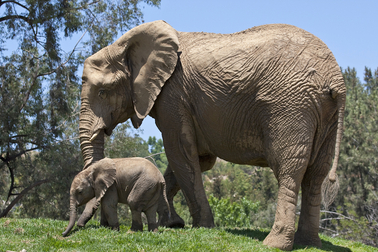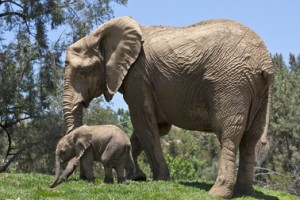ASU Partners with San Diego Zoo in Conservation Research

 On Behalf of ASU News: Science and Tech
On Behalf of ASU News: Science and Tech
The Institute for Interdisciplinary Salivary Bioscience Research at Arizona State University has began a collaborative partnership with the San Diego Zoo Institute for Conservation Research.
“Studying the behavior and welfare of our collection has always been central to our research mission,” said Lance Miller, a scientist with the zoo. “Our research programs are centered on advancing our understanding of individual animal’s well-being, behavior, reproductive cycles and health.”
The focus for the team is to research how changes in an animal’s environment have an effect on their overall health and behavior.
Douglas Granger, director, and his colleagues at the Institute for Interdisciplinary Salivary Bioscience Research study how biomarkers in saliva index individual differences in the effects of environmental change on behavioral and health outcomes.
“Our studies have focused on children and families, and in this case, studies with humans have the potential to inform studies with animals. Usually, it’s the other way around,” stated Granger. “By collecting saliva from animals at the zoo, we are able to non-invasively determine measures of individual differences in processes related to the physiology of stress, reproduction and immunity.”
“Integration of salivary bioscience into the study of animals in zoological facilities has a tremendous upside,” added Miller. “Additional information about the collection will always be beneficial.”
Their research plan starts with the elephants. “So far, we can say without a doubt that elephants don’t have any problem donating saliva,” said the two researchers. “The key question is what types of measures can be accurately made in their saliva, and what are these measurements related to?”
Granger noted, “Our assumption is that by adding measures of physiological systems that are environmentally sensitive, we will learn new information to aid Dr. Miller and his team in making decisions about the well-being of individual animals, and evaluate the impact of changes in schedules, social structure and features of the exhibits.”
Peggy Coulombe, Margaret.Coulombe@asu.edu
(480) 727-8934
College of Liberal Arts and Sciences














